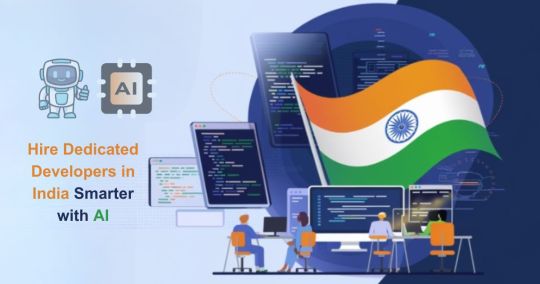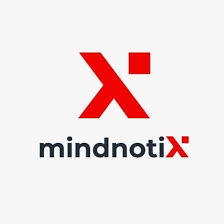#Hire Cloud application developer
Explore tagged Tumblr posts
Text
Hire Cloud Developers: Web, Mobile & API Experts | Connect Infosoft
Hire Cloud Developers offers expert services in web, mobile, and API development, specializing in cloud technologies. Our team builds scalable, secure, and high-performance applications using AWS, Azure, and Google Cloud. Partner with us for innovative cloud solutions.

#Cloud Computing Development Services#Cloud Computing Development#Cloud Computing Service#Hire Cloud Computing Developer#Cloud application development#Cloud migration services#Cloud-native development#Cloud infrastructure management#Cloud DevOps services#Cloud security services#Cloud cost optimization
0 notes
Text
Hire PHP Developers | PHP Cloud Solutions

Hire PHP Developers In India

Hire PHP Developers from IXLY Technologies and get experienced developers who will work just for your and your projects. Exclusive and undivided attention.Hire our dedicated developer dedicated monthly. Our developers has experience in developing applications and solutions for a Hire PHP Developers | PHP Cloud Solutions wide range of industries, small, mid and large scale. This also gives you an advantage of cutting development cost to almost 60%.
NDA Signup
Complete Control over team
95% Client Retention
Agile Development
Source Code Ownership
Monthly Billing
Average Period of a contract 3 years
Latest Thinking
No Upfront Payment Needed.
Our Full-Stack PHP Web Development Services
Our team of PHP experts can help in quick deployment of your projects and provide reliable support. So when you look for expert team to manage your projects, our team can fulfill your requirements.
PHP BASED PRODUCT DEVELOPMENT SERVICES
Looking to hire a php developer for your product development. We can help you build, deploy and maintain the product.
PHP CLOUD SOLUTIONS
Looking for PHP developer to modify and manage your SAAS, PAAS or any other backend system. Our experts can help you out.
CUSTOM PHP WEB APPLICATION DEVELOPMENT
Hire offshore php developer with strong foundation in the area expertise and work on multiple products and applications. Who can provide secure, robust and high performing PHP web applications.
PHP INTEGRATIONS & UPGRADATIONS
Hire PHP developers to upgrade your existing application. The existing platform can be in any technology, we can help you upgrade to PHP.
PHP BASED CMS DEVELOPMENT
Hire PHP developers to build your website.
API INTEGRATION DEVELOPMENT
We can integrate any third party API with ease on the website.
https://www.linkedin.com/company/ixly-technologies/

read more
#Hire Best Full-Stack PHP Web Development in India#Hire PHP Developers | Hire Dedicated PHP Programmers#Hire Dedicated PHP Developers India#Hire Full-Stack PHP Programmers#Hire Full-Stack PHP Programmers in India#Hire PHP Developers | PHP Cloud Solutions#Hire PHP Developers | PHP Based Product Development in India#Hire PHP Developers | Custom PHP Web Application Development#Hire the best Full Stack PHP developers#Hire PHP Web Developers
0 notes
Text
#cloud application company#cloud application development company#cloud application development services#hire blockchain developers#blockchain development company
0 notes
Text

If You Want To Bring Your Mobile App Vision To Life, Hire A Mobile Application Developer From QSET
Transform your mobile app dreams into reality by hiring a dedicated Mobile Application Developer from QSET. Our developers are experts in crafting innovative, user-friendly, and high-performance mobile applications across the iOS and Android platforms. With an in-depth understanding of programming languages, design principles, and the latest mobile technologies, our developers are equipped to create custom solutions tailored to your specific requirements. Whether you are a startup with a groundbreaking app idea or an established business looking to enhance your mobile presence, our developers can deliver exceptional results.
By hiring a Mobile Application Developer, you gain access to top talent committed to delivering projects on time and within budget. They will collaborate closely with you to ensure your app not only meets, but exceeds your expectations. Elevate your mobile app game and provide your users with an outstanding experience – hire a Mobile Application Developer today!
1 note
·
View note
Text
Hire Dedicated Developers in India Smarter with AI
Hire dedicated developers in India smarter and faster with AI-powered solutions. As businesses worldwide turn to software development outsourcing, India remains a top destination for IT talent acquisition. However, finding the right developers can be challenging due to skill evaluation, remote team management, and hiring efficiency concerns. Fortunately, AI recruitment tools are revolutionizing the hiring process, making it seamless and effective.

In this blog, I will explore how AI-powered developer hiring is transforming the recruitment landscape and how businesses can leverage these tools to build top-notch offshore development teams.
Why Hire Dedicated Developers in India?
1) Cost-Effective Without Compromising Quality:
Hiring dedicated developers in India can reduce costs by up to 60% compared to hiring in the U.S., Europe, or Australia. This makes it a cost-effective solution for businesses seeking high-quality IT staffing solutions in India.
2) Access to a Vast Talent Pool:
India has a massive talent pool with millions of software engineers proficient in AI, blockchain, cloud computing, and other emerging technologies. This ensures companies can find dedicated software developers in India for any project requirement.
3) Time-Zone Advantage for 24/7 Productivity:
Indian developers work across different time zones, allowing continuous development cycles. This enhances productivity and ensures faster project completion.
4) Expertise in Emerging Technologies:
Indian developers are highly skilled in cutting-edge fields like AI, IoT, and cloud computing, making them invaluable for innovative projects.
Challenges in Hiring Dedicated Developers in India
1) Finding the Right Talent Efficiently:
Sorting through thousands of applications manually is time-consuming. AI-powered recruitment tools streamline the process by filtering candidates based on skill match and experience.
2) Evaluating Technical and Soft Skills:
Traditional hiring struggles to assess real-world coding abilities and soft skills like teamwork and communication. AI-driven hiring processes include coding assessments and behavioral analysis for better decision-making.
3) Overcoming Language and Cultural Barriers:
AI in HR and recruitment helps evaluate language proficiency and cultural adaptability, ensuring smooth collaboration within offshore development teams.
4) Managing Remote Teams Effectively:
AI-driven remote work management tools help businesses track performance, manage tasks, and ensure accountability.
How AI is Transforming Developer Hiring
1. AI-Powered Candidate Screening:
AI recruitment tools use resume parsing, skill-matching algorithms, and machine learning to shortlist the best candidates quickly.
2. AI-Driven Coding Assessments:
Developer assessment tools conduct real-time coding challenges to evaluate technical expertise, code efficiency, and problem-solving skills.
3. AI Chatbots for Initial Interviews:
AI chatbots handle initial screenings, assessing technical knowledge, communication skills, and cultural fit before human intervention.
4. Predictive Analytics for Hiring Success:
AI analyzes past hiring data and candidate work history to predict long-term success, improving recruitment accuracy.
5. AI in Background Verification:
AI-powered background checks ensure candidate authenticity, education verification, and fraud detection, reducing hiring risks.
Steps to Hire Dedicated Developers in India Smarter with AI
1. Define Job Roles and Key Skill Requirements:
Outline essential technical skills, experience levels, and project expectations to streamline recruitment.
2. Use AI-Based Hiring Platforms:
Leverage best AI hiring platforms like LinkedIn Talent Insightsand HireVue to source top developers.
3. Implement AI-Driven Skill Assessments:
AI-powered recruitment processes use coding tests and behavioral evaluations to assess real-world problem-solving abilities.
4. Conduct AI-Powered Video Interviews:
AI-driven interview tools analyze body language, sentiment, and communication skills for improved hiring accuracy.
5. Optimize Team Collaboration with AI Tools:
Remote work management tools like Trello, Asana, and Jira enhance productivity and ensure smooth collaboration.
Top AI-Powered Hiring Tools for Businesses
LinkedIn Talent Insights — AI-driven talent analytics
HackerRank — AI-powered coding assessments
HireVue — AI-driven video interview analysis
Pymetrics — AI-based behavioral and cognitive assessments
X0PA AI — AI-driven talent acquisition platform
Best Practices for Managing AI-Hired Developers in India
1. Establish Clear Communication Channels:
Use collaboration tools like Slack, Microsoft Teams, and Zoom for seamless communication.
2. Leverage AI-Driven Productivity Tracking:
Monitor performance using AI-powered tracking tools like Time Doctor and Hubstaff to optimize workflows.
3. Encourage Continuous Learning and Upskilling:
Provide access to AI-driven learning platforms like Coursera and Udemy to keep developers updated on industry trends.
4. Foster Cultural Alignment and Team Bonding:
Organize virtual team-building activities to enhance collaboration and engagement.
Future of AI in Developer Hiring
1) AI-Driven Automation for Faster Hiring:
AI will continue automating tedious recruitment tasks, improving efficiency and candidate experience.
2) AI and Blockchain for Transparent Recruitment:
Integrating AI with blockchain will enhance candidate verification and data security for trustworthy hiring processes.
3) AI’s Role in Enhancing Remote Work Efficiency:
AI-powered analytics and automation will further improve productivity within offshore development teams.
Conclusion:
AI revolutionizes the hiring of dedicated developers in India by automating candidate screening, coding assessments, and interview analysis. Businesses can leverage AI-powered tools to efficiently find, evaluate, and manage top-tier offshore developers, ensuring cost-effective and high-quality software development outsourcing.
Ready to hire dedicated developers in India using AI? iQlance offers cutting-edge AI-powered hiring solutions to help you find the best talent quickly and efficiently. Get in touch today!
#AI#iqlance#hire#india#hirededicatreddevelopersinIndiawithAI#hirededicateddevelopersinindia#aipoweredhiringinindia#bestaihiringtoolsfordevelopers#offshoresoftwaredevelopmentindia#remotedeveloperhiringwithai#costeffectivedeveloperhiringindia#aidrivenrecruitmentforitcompanies#dedicatedsoftwaredevelopersindia#smarthiringwithaiinindia#aipowereddeveloperscreening
5 notes
·
View notes
Text

Shredded Secrets
Many kids dream of making a video game for consoles one day. But few can say they actually achieved that at the age of 12. However, there is an organization named Girls Make Games, which tries to encourage more women to join the video game industry by introducing them to game development at a young age. The idea came about after the married couple founders of a game studio named LearnDistrict discovered that the vast majority of job applicants were male. After a tweet about the idea of creating a summer camp for girls to learn game design received a great deal of support, including from industry veterans such as Tim Schafer (creator of Psychonauts), Girls Make Games was established. The organization also holds game jams, in which kids throw out their ideas for video games and then the ideas are judged by a panel which decides the best one. The idea that wins moves on to Kickstarter to receive funding to hire professionals to improve the game’s production values, and ultimately moves on to Steam. The first of these games to make its way to a console, the Nintendo Switch, was Shredded Secrets, designed by a team of 12-year-olds who called themselves Team Sarcastic Shark Clouds. It was judged by a panel which included Phil Spencer from Microsoft’s Xbox division, Shawn Laydon from Sony’s Playstation division, and Devon Pritchard from Nintendo. They were shown a very early beta of the game with simple graphics and unfinished gameplay mechanics, and onscreen unspoken dialog. The game’s concept in its early form was enough to impress the industry executives and win first place.
Read more...
#shredded secrets#team sarcastic shark clouds#platform games#nintendo switch#pc games#hardcore gaming 101#chris gallagher#review#video games#indie games
9 notes
·
View notes
Text

In today's rapidly improving technology industry, staying ahead and advancing in your career requires more than just technical skills. To thrive in this competitive field, individuals must continuously learn, adapt, and position themselves as valuable assets to potential employers.
In this blog post, we'll explore practical strategies and resources to boost your career in the technology industry.
We'll discuss the value of xml epg guide, provide career-boosting strategies, and offer tips on sharing helpful content to showcase your expertise.
The Power of EPG Guides Online
EPG (Electronic Program Guide) guides aren't just for TV programming; they can also serve as a valuable resource for job seekers in the technology industry.
EPG guides provide a centralized source of information to research and prepare for job opportunities. They offer insights into industry trends, emerging technologies, and the latest developments, ensuring you stay informed and ahead of the curve.
Career Boosting Strategies
To enhance your career prospects in the technology industry, consider these strategies:
Building a Strong Professional Network: Cultivate relationships with professionals in your field through networking events, online communities, and industry conferences. Establishing meaningful connections can lead to mentorship opportunities, job referrals, and valuable insights.
Developing In-demand Technical Skills: Continuously invest in upgrading and expanding your technical skills. Stay updated with emerging technologies and industry trends. Consider pursuing certifications or online courses to gain expertise in high-demand areas, such as cloud computing, artificial intelligence, or cybersecurity.
Crafting an Effective Resume and Cover Letter: Tailor your resume and cover letter to highlight relevant skills and experiences. Showcase your accomplishments, projects, and impact in previous roles. Ensure that your application materials are concise, well-structured, and free from errors.
Acing Job Interviews: Prepare thoroughly for job interviews by researching the company, understanding the job requirements, and practicing common interview questions. Demonstrate your problem-solving abilities, communication skills, and a genuine passion for technology.
Sharing Helpful Content
Creating and sharing relevant, informative content is an effective way to demonstrate your expertise and increase visibility in the technology industry. Consider the following tips:
Start a Tech Blog: Share your knowledge, experiences, and insights through a personal tech blog. Write about industry trends, tutorials, or showcase your project work. Engage with the tech community by commenting on related blogs or participating in forums.
Active Social Media Presence: Utilize social media platforms, such as Twitter, LinkedIn, and GitHub, to share relevant industry news, showcase your projects, and engage with industry professionals. Building an active and professional social media presence can increase your visibility and attract potential employers.
Online Portfolio/Projects: Create an online portfolio showcasing your technical projects, such as coding samples, applications, or website designs. Demonstrating your practical skills through tangible examples can pique the interest of hiring managers and give them an insight into your capabilities.
In the ever-rising technology industry, boosting your career requires a proactive approach. Utilize the power of xml epg guide to stay informed, adopt effective career-boosting strategies, and share helpful content to showcase your expertise.
By continuously investing in your professional development, building a robust network, and actively engaging with the tech community, you'll be well-positioned to advance your career and achieve your goals.
Remember, success in the technology industry requires not only technical proficiency but also a commitment to continuous learning, adaptability, and a passion for innovation.
youtube
8 notes
·
View notes
Text

https://manxel.com/products/hrms
Manxel HRMS is a cloud-based Human Resource Management System designed to streamline and automate HR operations for businesses of all sizes. Developed by Curve Digital Solutions (SMC-PVT) LTD, Manxel offers a comprehensive suite of tools to manage various HR functions efficiently.
Chrome Stats+2APKCombo.com+2Google Play+2
Key Features of Manxel HRMS:
Employee Management: Centralized platform for storing and managing employee data, including personal details, job history, and performance records.
Payroll Processing: Automates salary calculations, deductions, taxes, and payment processing to ensure timely and accurate payroll management.
Attendance and Leave Tracking: Monitors employee attendance, working hours, vacation days, and sick leave, facilitating efficient workforce management.
tylertech.com+1hrm.manxel.com+1
Recruitment and Onboarding: Streamlines the hiring process by assisting with job postings, application tracking, candidate evaluation, and onboarding of new hires.
Performance Management: Enables setting goals, conducting evaluations, and managing employee performance to align with organizational objectives.
AI-Powered Insights: Utilizes artificial intelligence to provide data-driven insights for informed decision-making in HR strategies.
User-Friendly Interface: Designed with an intuitive and simple user interface to enhance user experience and accessibility.
Manxel HRMS is accessible via web and mobile platforms, allowing HR teams and employees to manage HR tasks on the go. The mobile application is available for download on the Google Play Store
2 notes
·
View notes
Text
The Future of ERP Integrations: How Low-Code and No-Code Platforms Are Changing the Game
Enterprise Resource Planning (ERP) systems’ primary goal has been to enhance business operations through streamlining critical processes such as finance or supply chain management. However, to be honest, the integration of the ERPs with other tools has not always been an easy task. It was really a nightmare for companies to integrate ERPs with the other tools. Time-consuming development cycles, huge IT costs, and some complex coding requirements totally turned ERP integrations into a mess for businesses.
But, here are low-code and no-code platforms like Odoo ERP that are quite the game-changers in ERP integrations. These contemporary remedies have made it much easier, faster, and cheaper to connect ERPs with other business applications. Let me explain to you how they are altering the landscape.

Breaking Down the Buzz: What Are Low-Code and No-Code Platforms?
Low-code platforms enable users to develop applications by designing visually with less code. They include visual design immediate productivity capabilities that promise to fast-track work for a broad spectrum of users in the organization.
No-code platforms take the automation level a little further allowing even average users like IT, ERP, engineers, business analysts, and business owners to create their systems the way they want without having to write a single line of code, and thus they can focus on tasks that matter.
By doing this, businesses just simply change their budget from standard, long, and costly ERP integrations to the cloud.
How Low-Code & No-Code Are Transforming ERP Integrations
Speed Like Never Before - Traditional ERP integrations used to be a time-consuming process and often took weeks, sometimes even months. The use of low-code/no-code tools has become revolutionary and businesses can now develop integrations in just a few days or hours. At the same time, pre-built Connectors and Templates, and automation tools certainly make the life of developers easier.
Reduced IT Dependency - In the past, ERP integrations necessitated the participation of IT teams or even external developers. Over time, the implementation of the low code/no code approach has increasingly led to newcomers getting involved. For instance, the business user can take up the role of the IT team, and as a result, the bottleneck is removed, and the tech teams do more strategic tasks.
Cost Savings Galore - The cost of hiring developers for custom ERP integrations can be hefty. On the other hand, Low-code/no-code solutions indeed offer the benefit of not needing much real developer input. As a result, such systems can be set up and maintained by non-technical employees alone.
Flexibility & Scalability - Companies are getting innovative and growing while software needs are also changing. With the help of low-code/no-code technologies, organizations can accomplish this by simply changing the integration on the go (so to speak). This way, there is no need to reinvent software every time there is a need for change.
Enforced Security & Compliance - No-code/low-code transformational strategies that are inherently secured and compliant mean that ERP integrations will be fulfilled with the required regulations hassle-free for IT teams.
Who’s Leading the Low-Code/No-Code Revolution?
Several players are shaking up the ERP integration landscape. Platforms like Odoo, Zapier, Mendix, OutSystems, and Microsoft Power Automate are leading the charge, making ERP integrations accessible to businesses of all sizes.
Is This the End of Traditional ERP Integrations?
No, it's not. Traditional coding is still very much a necessity for complex and highly customized integrations. However, low-code and no-code platforms are help in most cases to save time, money, and energy.
Odoo: A Top Low-Code ERP
Odoo is one of the best low-code ERP platforms, offering flexibility, automation, and easy customization. With its modular design and drag-and-drop tools, businesses can streamline operations without deep coding expertise.
Final Thoughts: The Future is Here
The days of painful, drawn-out ERP integrations are fading. Low-code and no-code platforms like Odoo are making ERP connectivity easier than ever, allowing businesses to focus on growth rather than technical roadblocks. If your company hasn’t explored these tools yet, now’s the time to jump in!
The future of ERP integrations is fast, flexible, and code-free—are you ready for the Odoo upgrade?
Read more: Click Here
3 notes
·
View notes
Text
How Python Powers Scalable and Cost-Effective Cloud Solutions

Explore the role of Python in developing scalable and cost-effective cloud solutions. This guide covers Python's advantages in cloud computing, addresses potential challenges, and highlights real-world applications, providing insights into leveraging Python for efficient cloud development.
Introduction
In today's rapidly evolving digital landscape, businesses are increasingly leveraging cloud computing to enhance scalability, optimize costs, and drive innovation. Among the myriad of programming languages available, Python has emerged as a preferred choice for developing robust cloud solutions. Its simplicity, versatility, and extensive library support make it an ideal candidate for cloud-based applications.
In this comprehensive guide, we will delve into how Python empowers scalable and cost-effective cloud solutions, explore its advantages, address potential challenges, and highlight real-world applications.
Why Python is the Preferred Choice for Cloud Computing?
Python's popularity in cloud computing is driven by several factors, making it the preferred language for developing and managing cloud solutions. Here are some key reasons why Python stands out:
Simplicity and Readability: Python's clean and straightforward syntax allows developers to write and maintain code efficiently, reducing development time and costs.
Extensive Library Support: Python offers a rich set of libraries and frameworks like Django, Flask, and FastAPI for building cloud applications.
Seamless Integration with Cloud Services: Python is well-supported across major cloud platforms like AWS, Azure, and Google Cloud.
Automation and DevOps Friendly: Python supports infrastructure automation with tools like Ansible, Terraform, and Boto3.
Strong Community and Enterprise Adoption: Python has a massive global community that continuously improves and innovates cloud-related solutions.
How Python Enables Scalable Cloud Solutions?
Scalability is a critical factor in cloud computing, and Python provides multiple ways to achieve it:
1. Automation of Cloud Infrastructure
Python's compatibility with cloud service provider SDKs, such as AWS Boto3, Azure SDK for Python, and Google Cloud Client Library, enables developers to automate the provisioning and management of cloud resources efficiently.
2. Containerization and Orchestration
Python integrates seamlessly with Docker and Kubernetes, enabling businesses to deploy scalable containerized applications efficiently.
3. Cloud-Native Development
Frameworks like Flask, Django, and FastAPI support microservices architecture, allowing businesses to develop lightweight, scalable cloud applications.
4. Serverless Computing
Python's support for serverless platforms, including AWS Lambda, Azure Functions, and Google Cloud Functions, allows developers to build applications that automatically scale in response to demand, optimizing resource utilization and cost.
5. AI and Big Data Scalability
Python’s dominance in AI and data science makes it an ideal choice for cloud-based AI/ML services like AWS SageMaker, Google AI, and Azure Machine Learning.
Looking for expert Python developers to build scalable cloud solutions? Hire Python Developers now!
Advantages of Using Python for Cloud Computing
Cost Efficiency: Python’s compatibility with serverless computing and auto-scaling strategies minimizes cloud costs.
Faster Development: Python’s simplicity accelerates cloud application development, reducing time-to-market.
Cross-Platform Compatibility: Python runs seamlessly across different cloud platforms.
Security and Reliability: Python-based security tools help in encryption, authentication, and cloud monitoring.
Strong Community Support: Python developers worldwide contribute to continuous improvements, making it future-proof.
Challenges and Considerations
While Python offers many benefits, there are some challenges to consider:
Performance Limitations: Python is an interpreted language, which may not be as fast as compiled languages like Java or C++.
Memory Consumption: Python applications might require optimization to handle large-scale cloud workloads efficiently.
Learning Curve for Beginners: Though Python is simple, mastering cloud-specific frameworks requires time and expertise.
Python Libraries and Tools for Cloud Computing
Python’s ecosystem includes powerful libraries and tools tailored for cloud computing, such as:
Boto3: AWS SDK for Python, used for cloud automation.
Google Cloud Client Library: Helps interact with Google Cloud services.
Azure SDK for Python: Enables seamless integration with Microsoft Azure.
Apache Libcloud: Provides a unified interface for multiple cloud providers.
PyCaret: Simplifies machine learning deployment in cloud environments.
Real-World Applications of Python in Cloud Computing
1. Netflix - Scalable Streaming with Python
Netflix extensively uses Python for automation, data analysis, and managing cloud infrastructure, enabling seamless content delivery to millions of users.
2. Spotify - Cloud-Based Music Streaming
Spotify leverages Python for big data processing, recommendation algorithms, and cloud automation, ensuring high availability and scalability.
3. Reddit - Handling Massive Traffic
Reddit uses Python and AWS cloud solutions to manage heavy traffic while optimizing server costs efficiently.
Future of Python in Cloud Computing
The future of Python in cloud computing looks promising with emerging trends such as:
AI-Driven Cloud Automation: Python-powered AI and machine learning will drive intelligent cloud automation.
Edge Computing: Python will play a crucial role in processing data at the edge for IoT and real-time applications.
Hybrid and Multi-Cloud Strategies: Python’s flexibility will enable seamless integration across multiple cloud platforms.
Increased Adoption of Serverless Computing: More enterprises will adopt Python for cost-effective serverless applications.
Conclusion
Python's simplicity, versatility, and robust ecosystem make it a powerful tool for developing scalable and cost-effective cloud solutions. By leveraging Python's capabilities, businesses can enhance their cloud applications' performance, flexibility, and efficiency.
Ready to harness the power of Python for your cloud solutions? Explore our Python Development Services to discover how we can assist you in building scalable and efficient cloud applications.
FAQs
1. Why is Python used in cloud computing?
Python is widely used in cloud computing due to its simplicity, extensive libraries, and seamless integration with cloud platforms like AWS, Google Cloud, and Azure.
2. Is Python good for serverless computing?
Yes! Python works efficiently in serverless environments like AWS Lambda, Azure Functions, and Google Cloud Functions, making it an ideal choice for cost-effective, auto-scaling applications.
3. Which companies use Python for cloud solutions?
Major companies like Netflix, Spotify, Dropbox, and Reddit use Python for cloud automation, AI, and scalable infrastructure management.
4. How does Python help with cloud security?
Python offers robust security libraries like PyCryptodome and OpenSSL, enabling encryption, authentication, and cloud monitoring for secure cloud applications.
5. Can Python handle big data in the cloud?
Yes! Python supports big data processing with tools like Apache Spark, Pandas, and NumPy, making it suitable for data-driven cloud applications.
#Python development company#Python in Cloud Computing#Hire Python Developers#Python for Multi-Cloud Environments
2 notes
·
View notes
Text
Hire Dedicated Android & iOS App Developers in Indore for Custom Solutions – Young Decade
Looking for experienced Android and iOS app developers in Indore? At Young Decade, we provide top-notch mobile app development services tailored to your business needs. Our dedicated developers specialize in building scalable, high-performance apps that help businesses thrive in the digital world. Whether you need a custom Android application or a feature-rich iOS app, we deliver solutions that drive success.

Why Choose Young Decade for Mobile App Development?
✔ Dedicated Android & iOS Developers – Our skilled team ensures high-quality, user-friendly, and robust mobile applications. ✔ Customized App Solutions – We develop apps that align with your business goals and market demands. ✔ Cross-Platform Expertise – We create applications that work seamlessly across multiple devices. ✔ Agile Development Approach – We follow a flexible and efficient development process to deliver projects on time. ✔ Cutting-Edge Technologies – From AI-powered features to cloud integration, we use the latest tools to enhance app functionality. ✔ Trusted by Global Clients – We proudly serve businesses in the USA, Canada, Dubai (UAE), and India with exceptional mobile app solutions.
Hire the Best Mobile App Developers in Indore Today!
At Young Decade, we understand the importance of a strong mobile presence. Our expert developers build secure, high-performing, and scalable mobile applications tailored to your industry needs.
📲 Transform your business with a powerful mobile app! Contact Young Decade today and hire the best Android & iOS developers in Indore for your project. 🚀
#software development#software development company#android app developers#best android app development company#developers & startups#app development company#Top IT companies in Indore#Flutter app development company in Indore#react native app development company in Indore
2 notes
·
View notes
Text
How Much Does React Native App Development Cost in California?

With the growing demand for mobile applications, businesses are increasingly opting for cross-platform solutions like React Native to reduce development time and costs. California, being a tech hub, has a vibrant ecosystem of app development companies, but the cost of development can vary significantly based on several factors. In this blog, we’ll explore the cost of React Native app development in California and what influences the pricing.
Factors Influencing React Native App Development Cost
1. Complexity of the App
The complexity of your app plays a crucial role in determining the cost. Apps can be categorized into three levels of complexity:
Simple Apps – Basic apps with minimal features, such as a calculator or to-do list. ($10,000 - $30,000)
Medium Complexity Apps – Apps with additional functionalities like user authentication, API integration, and database management. ($30,000 - $80,000)
Complex Apps – Feature-rich apps with real-time data sync, AI, AR/VR, or blockchain integration. ($80,000 - $200,000+)
2. UI/UX Design
An intuitive and appealing UI/UX is essential for user engagement. Custom designs and animations can increase costs but significantly improve user experience. UI/UX design costs in California typically range from $5,000 to $30,000depending on complexity.
3. Development Team
Hiring a development team in California is costlier than in many other regions due to high labor costs. The pricing varies based on the team’s experience:
Freelancers – $30 - $100 per hour
Small Agencies – $50 - $150 per hour
Established Development Firms – $100 - $250 per hour
4. Backend Development & Third-Party Integrations
If your app requires a strong backend, the cost increases. Cloud-based solutions like AWS, Firebase, or custom-built servers influence pricing. Additionally, integrating third-party services (payment gateways, APIs, analytics tools) can add $5,000 - $50,000 to the development cost.
5. Maintenance & Updates
Post-launch maintenance is essential for app stability. Maintenance costs can range from 15-20% of the total development cost per year to fix bugs, update features, and ensure compatibility with the latest OS versions.
Estimated Cost Breakdown for React Native App Development in California
Basic App Development - $10,000 - $30,000
Medium Complexity App - $30,000 - $80,000
Complex App Development - $80,000 - $200,000+
UI/UX Design$5,000 - $30,000
Backend & Integrations - $5,000 - $50,000
Maintenance (Annual) - 15-20% of dev cost
Ways to Reduce React Native App Development Cost
Prioritize MVP Development – Focus on a Minimum Viable Product (MVP) to validate the idea before investing heavily.
Outsource Development – Hiring offshore or nearshore teams can reduce costs while maintaining quality.
Utilize Pre-built Solutions – Use pre-existing UI components and third-party integrations to speed up development.
Choose a Cost-effective Development Partner – Partnering with an experienced yet cost-effective development firm ensures quality without overspending.
Final Thoughts
React Native app development costs in California can vary widely based on complexity, team expertise, and required features. While it’s a cost-effective alternative to native development, strategic planning is essential to optimize the budget. If you’re considering building a React Native app, consult a reputable development firm to get a tailored cost estimate based on your specific needs.
Need help with React Native app development? Contact us today for a free consultation!
#app development company in California#mobile app development company in California#app development company California#mobile app developer in California#app developer in California
2 notes
·
View notes
Text
Top 10 In- Demand Tech Jobs in 2025

Technology is growing faster than ever, and so is the need for skilled professionals in the field. From artificial intelligence to cloud computing, businesses are looking for experts who can keep up with the latest advancements. These tech jobs not only pay well but also offer great career growth and exciting challenges.
In this blog, we’ll look at the top 10 tech jobs that are in high demand today. Whether you’re starting your career or thinking of learning new skills, these jobs can help you plan a bright future in the tech world.
1. AI and Machine Learning Specialists
Artificial Intelligence (AI) and Machine Learning are changing the game by helping machines learn and improve on their own without needing step-by-step instructions. They’re being used in many areas, like chatbots, spotting fraud, and predicting trends.
Key Skills: Python, TensorFlow, PyTorch, data analysis, deep learning, and natural language processing (NLP).
Industries Hiring: Healthcare, finance, retail, and manufacturing.
Career Tip: Keep up with AI and machine learning by working on projects and getting an AI certification. Joining AI hackathons helps you learn and meet others in the field.
2. Data Scientists
Data scientists work with large sets of data to find patterns, trends, and useful insights that help businesses make smart decisions. They play a key role in everything from personalized marketing to predicting health outcomes.
Key Skills: Data visualization, statistical analysis, R, Python, SQL, and data mining.
Industries Hiring: E-commerce, telecommunications, and pharmaceuticals.
Career Tip: Work with real-world data and build a strong portfolio to showcase your skills. Earning certifications in data science tools can help you stand out.
3. Cloud Computing Engineers: These professionals create and manage cloud systems that allow businesses to store data and run apps without needing physical servers, making operations more efficient.
Key Skills: AWS, Azure, Google Cloud Platform (GCP), DevOps, and containerization (Docker, Kubernetes).
Industries Hiring: IT services, startups, and enterprises undergoing digital transformation.
Career Tip: Get certified in cloud platforms like AWS (e.g., AWS Certified Solutions Architect).
4. Cybersecurity Experts
Cybersecurity professionals protect companies from data breaches, malware, and other online threats. As remote work grows, keeping digital information safe is more crucial than ever.
Key Skills: Ethical hacking, penetration testing, risk management, and cybersecurity tools.
Industries Hiring: Banking, IT, and government agencies.
Career Tip: Stay updated on new cybersecurity threats and trends. Certifications like CEH (Certified Ethical Hacker) or CISSP (Certified Information Systems Security Professional) can help you advance in your career.
5. Full-Stack Developers
Full-stack developers are skilled programmers who can work on both the front-end (what users see) and the back-end (server and database) of web applications.
Key Skills: JavaScript, React, Node.js, HTML/CSS, and APIs.
Industries Hiring: Tech startups, e-commerce, and digital media.
Career Tip: Create a strong GitHub profile with projects that highlight your full-stack skills. Learn popular frameworks like React Native to expand into mobile app development.
6. DevOps Engineers
DevOps engineers help make software faster and more reliable by connecting development and operations teams. They streamline the process for quicker deployments.
Key Skills: CI/CD pipelines, automation tools, scripting, and system administration.
Industries Hiring: SaaS companies, cloud service providers, and enterprise IT.
Career Tip: Earn key tools like Jenkins, Ansible, and Kubernetes, and develop scripting skills in languages like Bash or Python. Earning a DevOps certification is a plus and can enhance your expertise in the field.
7. Blockchain Developers
They build secure, transparent, and unchangeable systems. Blockchain is not just for cryptocurrencies; it’s also used in tracking supply chains, managing healthcare records, and even in voting systems.
Key Skills: Solidity, Ethereum, smart contracts, cryptography, and DApp development.
Industries Hiring: Fintech, logistics, and healthcare.
Career Tip: Create and share your own blockchain projects to show your skills. Joining blockchain communities can help you learn more and connect with others in the field.
8. Robotics Engineers
Robotics engineers design, build, and program robots to do tasks faster or safer than humans. Their work is especially important in industries like manufacturing and healthcare.
Key Skills: Programming (C++, Python), robotics process automation (RPA), and mechanical engineering.
Industries Hiring: Automotive, healthcare, and logistics.
Career Tip: Stay updated on new trends like self-driving cars and AI in robotics.
9. Internet of Things (IoT) Specialists
IoT specialists work on systems that connect devices to the internet, allowing them to communicate and be controlled easily. This is crucial for creating smart cities, homes, and industries.
Key Skills: Embedded systems, wireless communication protocols, data analytics, and IoT platforms.
Industries Hiring: Consumer electronics, automotive, and smart city projects.
Career Tip: Create IoT prototypes and learn to use platforms like AWS IoT or Microsoft Azure IoT. Stay updated on 5G technology and edge computing trends.
10. Product Managers
Product managers oversee the development of products, from idea to launch, making sure they are both technically possible and meet market demands. They connect technical teams with business stakeholders.
Key Skills: Agile methodologies, market research, UX design, and project management.
Industries Hiring: Software development, e-commerce, and SaaS companies.
Career Tip: Work on improving your communication and leadership skills. Getting certifications like PMP (Project Management Professional) or CSPO (Certified Scrum Product Owner) can help you advance.
Importance of Upskilling in the Tech Industry
Stay Up-to-Date: Technology changes fast, and learning new skills helps you keep up with the latest trends and tools.
Grow in Your Career: By learning new skills, you open doors to better job opportunities and promotions.
Earn a Higher Salary: The more skills you have, the more valuable you are to employers, which can lead to higher-paying jobs.
Feel More Confident: Learning new things makes you feel more prepared and ready to take on tougher tasks.
Adapt to Changes: Technology keeps evolving, and upskilling helps you stay flexible and ready for any new changes in the industry.
Top Companies Hiring for These Roles
Global Tech Giants: Google, Microsoft, Amazon, and IBM.
Startups: Fintech, health tech, and AI-based startups are often at the forefront of innovation.
Consulting Firms: Companies like Accenture, Deloitte, and PwC increasingly seek tech talent.
In conclusion, the tech world is constantly changing, and staying updated is key to having a successful career. In 2025, jobs in fields like AI, cybersecurity, data science, and software development will be in high demand. By learning the right skills and keeping up with new trends, you can prepare yourself for these exciting roles. Whether you're just starting or looking to improve your skills, the tech industry offers many opportunities for growth and success.
#Top 10 Tech Jobs in 2025#In- Demand Tech Jobs#High paying Tech Jobs#artificial intelligence#datascience#cybersecurity
2 notes
·
View notes
Text
What Are the Costs Associated with Fintech Software Development?

The fintech industry is experiencing exponential growth, driven by advancements in technology and increasing demand for innovative financial solutions. As organizations look to capitalize on this trend, understanding the costs associated with fintech software development becomes crucial. Developing robust and secure applications, especially for fintech payment solutions, requires significant investment in technology, expertise, and compliance measures. This article breaks down the key cost factors involved in fintech software development and how businesses can navigate these expenses effectively.
1. Development Team and Expertise
The development team is one of the most significant cost drivers in fintech software development. Hiring skilled professionals, such as software engineers, UI/UX designers, quality assurance specialists, and project managers, requires a substantial budget. The costs can vary depending on the team’s location, expertise, and experience level. For example:
In-house teams: Employing full-time staff provides better control but comes with recurring costs such as salaries, benefits, and training.
Outsourcing: Hiring external agencies or freelancers can reduce costs, especially if the development team is located in regions with lower labor costs.
2. Technology Stack
The choice of technology stack plays a significant role in the overall development cost. Building secure and scalable fintech payment solutions requires advanced tools, frameworks, and programming languages. Costs include:
Licenses and subscriptions: Some technologies require paid licenses or annual subscriptions.
Infrastructure: Cloud services, databases, and servers are essential for hosting and managing fintech applications.
Integration tools: APIs for payment processing, identity verification, and other functionalities often come with usage fees.
3. Security and Compliance
The fintech industry is heavily regulated, requiring adherence to strict security standards and legal compliance. Implementing these measures adds to the development cost but is essential to avoid potential fines and reputational damage. Key considerations include:
Data encryption: Robust encryption protocols like AES-256 to protect sensitive data.
Compliance certifications: Obtaining certifications such as PCI DSS, GDPR, and ISO/IEC 27001 can be costly but are mandatory for operating in many regions.
Security audits: Regular penetration testing and vulnerability assessments are necessary to ensure application security.
4. Customization and Features
The complexity of the application directly impacts the cost. Basic fintech solutions may have limited functionality, while advanced applications require more extensive development efforts. Common features that add to the cost include:
User authentication: Multi-factor authentication (MFA) and biometric verification.
Real-time processing: Handling high volumes of transactions with minimal latency.
Analytics and reporting: Providing users with detailed financial insights and dashboards.
Blockchain integration: Leveraging blockchain for enhanced security and transparency.
5. User Experience (UX) and Design
A seamless and intuitive user interface is critical for customer retention in the fintech industry. Investing in high-quality UI/UX design ensures that users can navigate the platform effortlessly. Costs in this category include:
Prototyping and wireframing.
Usability testing.
Responsive design for compatibility across devices.
6. Maintenance and Updates
Fintech applications require ongoing maintenance to remain secure and functional. Post-launch costs include:
Bug fixes and updates: Addressing issues and releasing new features.
Server costs: Maintaining and scaling infrastructure to accommodate user growth.
Monitoring tools: Real-time monitoring systems to track performance and security.
7. Marketing and Customer Acquisition
Once the fintech solution is developed, promoting it to the target audience incurs additional costs. Marketing strategies such as digital advertising, influencer partnerships, and content marketing require significant investment. Moreover, onboarding users and providing customer support also contribute to the total cost.
8. Geographic Factors
The cost of fintech software development varies significantly based on geographic factors. Development in North America and Western Europe tends to be more expensive compared to regions like Eastern Europe, South Asia, or Latin America. Businesses must weigh the trade-offs between cost savings and access to high-quality talent.
9. Partnering with Technology Providers
Collaborating with established technology providers can reduce development costs while ensuring top-notch quality. For instance, Xettle Technologies offers comprehensive fintech solutions, including secure APIs and compliance-ready tools, enabling businesses to streamline development processes and minimize risks. Partnering with such providers can save time and resources while enhancing the application's reliability.
Cost Estimates
While costs vary depending on the project's complexity, here are rough estimates:
Basic applications: $50,000 to $100,000.
Moderately complex solutions: $100,000 to $250,000.
Highly advanced platforms: $250,000 and above.
These figures include development, security measures, and initial marketing efforts but may rise with added features or broader scope.
Conclusion
Understanding the costs associated with fintech software development is vital for effective budgeting and project planning. From assembling a skilled team to ensuring compliance and security, each component contributes to the total investment. By leveraging advanced tools and partnering with experienced providers like Xettle Technologies, businesses can optimize costs while delivering high-quality fintech payment solutions. The investment, though significant, lays the foundation for long-term success in the competitive fintech industry.
2 notes
·
View notes
Text
IT companies in Coimbatore :Hiring freshers role and benefit
Coimbatore has emerged as a preferred location for IT professionals due to its affordable cost of living, high-quality educational institutions, and the city’s well-developed infrastructure. Unlike metropolitan cities, IT companies in Coimbatore offers a balanced lifestyle with a lower cost of living, which appeals to many working professionals. With a pool of skilled talent graduating from nearby engineering and technical institutions, Coimbatore is an ideal place for IT companies to find qualified candidates for various roles, making it a hot spot for job seekers.

Who Are the Leading IT Companies in Coimbatore?
The city hosts several top IT companies, including Tata Consultancy Services (TCS), Cognizant, Wipro, and Robert Bosch, along with growing regional players like KGISL and Aspire Systems. These companies offer a variety of services from software development to business consulting and automation solutions. Working with such companies not only provides a chance to learn and grow but also adds credibility to one's career profile. Their well-established infrastructure and focus on training employees make them attractive employers in the region.
Best IT Companies in Coimbatore :
Coimbatore, one of Tamil Nadu's major industrial hubs, has seen significant growth in the IT sector. Known for its skilled workforce, affordable infrastructure, and a supportive business ecosystem, the city hosts many IT companies that offer a wide range of services from software development to digital transformation.

Here’s a look at some of the best IT company in Coimbatore :
Accenture :

Global consulting and technology services company providing full-fledged IT and business process services.
ThoughtWorks:

Leaders in software consultancy to get custom software developed through agile methodology and digital transformation
Payoda Technologies :

focuses primarily on aspects of digital transformation, analytics, cloud solution development and software development.
Sridhar Vembu Institute of Technology (Zoho Corp) :

It is based in Chennai; however, the innovation and research wing of Zoho is based in Coimbatore, where it works on software product development.
Softratech Info :

The company provides IT solutions, consultancy, software development, and support services.
Repute Network :

A technology-based company, focusing on digital payments, financial technologies, and blockchain solutions
Mindnotix Technologies :

A technology firm, developing web and mobile applications as well as AR/VR-based applications, and AI-driven applications.
Kumaraguru College of Technology :

Technology Business Incubator (KCT-TBI) - Incubates start-ups and tech innovation in IoT, AI, robotics, and software solutions.
Revature India :

Trains and develops software services and products, focusing on creating technical talent for the global market.
i2i Software Solutions :

Offers end-to-end software solutions and IT services, with a focus on custom development.
eQuadriga Software Pvt Ltd :

is an IT services company focusing on software development, mobile apps, and digital marketing.
Conclusion :
Coimbatore’s IT sector is full of opportunities for freshers, thanks to a supportive ecosystem of companies and a growing tech community. From MNCs like Cognizant and Bosch to dynamic startups, IT companies in Coimbatore provides ample options for fresh graduates eager to kickstart their careers. With a focus on learning, networking, and skill development, freshers can build a promising career in this thriving city.
#it company#IT companies in Coimbatore#internship#freshers it job#jobseekers#jobs#employment#careers#workplace#inside job
3 notes
·
View notes
Text
India’s Tech Sector to Create 1.2 Lakh AI Job Vacancies in Two Years
India’s technology sector is set to experience a hiring boom with job vacancies for artificial intelligence (AI) roles projected to reach 1.2 lakh over the next two years. As the demand for AI latest technology increases across industries, companies are rapidly adopting advanced tools to stay competitive. These new roles will span across tech services, Global Capability Centres (GCCs), pure-play AI and analytics firms, startups, and product companies.
Following a slowdown in tech hiring, the focus is shifting toward the development of AI. Market analysts estimate that Indian companies are moving beyond Proof of Concept (PoC) and deploying large-scale AI systems, generating high demand for roles such as AI researchers, product managers, and data application specialists. “We foresee about 120,000 to 150,000 AI-related job vacancies emerging as Indian IT services ramp up AI applications,” noted Gaurav Vasu, CEO of UnearthInsight.
India currently has 4 lakh AI professionals, but the gap between demand and supply is widening, with job requirements expected to reach 6 lakh soon. By 2026, experts predict the number of AI specialists required will hit 1 million, reflecting the deep integration of AI latest technology into industries like healthcare, e-commerce, and manufacturing.
The transition to AI-driven operations is also altering the nature of job vacancies. Unlike traditional software engineering roles, artificial intelligence positions focus on advanced algorithms, automation, and machine learning. Companies are recruiting experts in fields like deep learning, robotics, and natural language processing to meet the growing demand for innovative AI solutions. The development of AI has led to the rise of specialised roles such as Machine Learning Engineers, Data Scientists, and Prompt Engineers.
Krishna Vij, Vice President of TeamLease Digital, remarked that new AI roles are evolving across industries as AI latest technology becomes an essential tool for product development, operations, and consulting. “We expect close to 120,000 new job vacancies in AI across different sectors like finance, healthcare, and autonomous systems,” he said.
AI professionals also enjoy higher compensation compared to their traditional tech counterparts. Around 80% of AI-related job vacancies offer premium salaries, with packages 40%-80% higher due to the limited pool of trained talent. “The low availability of experienced AI professionals ensures that artificial intelligence roles will command attractive pay for the next 2-3 years,” noted Krishna Gautam, Business Head of Xpheno.
Candidates aiming for AI roles need to master key competencies. Proficiency in programming languages like Python, R, Java, or C++ is essential, along with knowledge of AI latest technology such as large language models (LLMs). Expertise in statistics, machine learning algorithms, and cloud computing platforms adds value to applicants. As companies adopt AI latest technology across domains, candidates with critical thinking and AI adaptability will stay ahead so it is important to learn and stay updated with AI informative blogs & news.
Although companies are prioritising experienced professionals for mid-to-senior roles, entry-level job vacancies are also rising, driven by the increased use of AI in enterprises. Bootcamps, certifications, and academic programs are helping freshers gain the skills required for artificial intelligence roles. As AI development progresses, entry-level roles are expected to expand in the near future. AI is reshaping the industries providing automation & the techniques to save time , to increase work efficiency.
India’s tech sector is entering a transformative phase, with a surge in job vacancies linked to AI latest technology adoption. The next two years will witness fierce competition for AI talent, reshaping hiring trends across industries and unlocking new growth opportunities in artificial intelligence. Both startups and established companies are racing to secure talent, fostering a dynamic landscape where artificial intelligence expertise will be help in innovation and growth. AI will help organizations and businesses to actively participate in new trends.
#aionlinemoney.com
2 notes
·
View notes